9 ways to get rid of wasps —and keep them away from your home
When you buy through links on our articles, Future and its syndication partners may earn a commission.
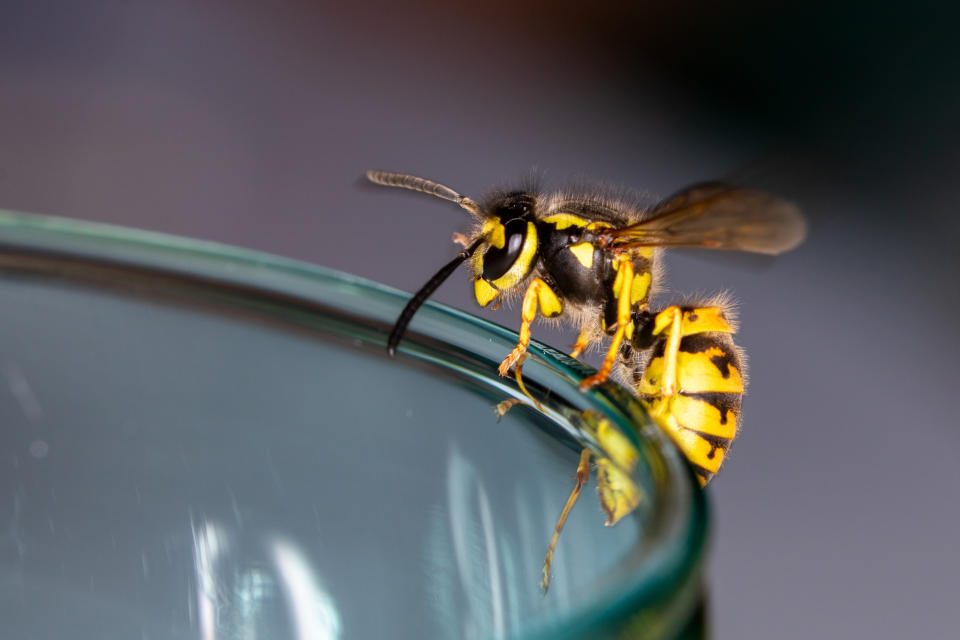
Whether you have your windows open during summer or hosting an outdoor gathering, it can get frustrating when wasps invade your space. And while such insects are nature’s pest control, knowing how to get rid of wasps safely can come in handy.
If wasps frequent your yard and you’re not a fan of using chemical repellents, there are some natural ways to deter them from buzzing around. What's more, you might already have some of these items in your kitchen cupboards, which are far more cost-effective.
So if you want to avoid the sting, here are some easy ways to get rid of wasps and keep them away from your home.
Want to know why wasps frequent your outdoor space? Check out 7 things that attract wasps to your yard. Plus, here's 7 ways to repel bugs while dining outdoors.
How to get rid of wasps from your home and yard
The following methods are intended to deter individual wasps rather than to handle an infestation.
If you’re dealing with a wasp nest, do not approach and attempt to deal with it yourself. Unless you have the correct protection, equipment and method, this can be very dangerous. Instead, make sure you call in a professional.
1. Essential oils

Wasps hate the smell of peppermint, lemongrass and citronella. So, if you have any of these essential oils at home, you can dilute them in a spray bottle and apply them to areas where wasps frequent. This can be used both indoors and outdoors.
“As an environmental consultant with over 25 years of experience, I have found essential oils and natural repellents to be effective pest deterrents,” states Steve Rosas, COO and president of Omega Environmental Services."Rosemary oil, in particular, works well against wasps and bees."
If you’ve previously removed a wasp nest, it’s a good idea to spray this location to prevent a re-infestation. Remember, you will need to reapply the oil once it dissipates or if it rains.
2. Plant wasp-repelling plants
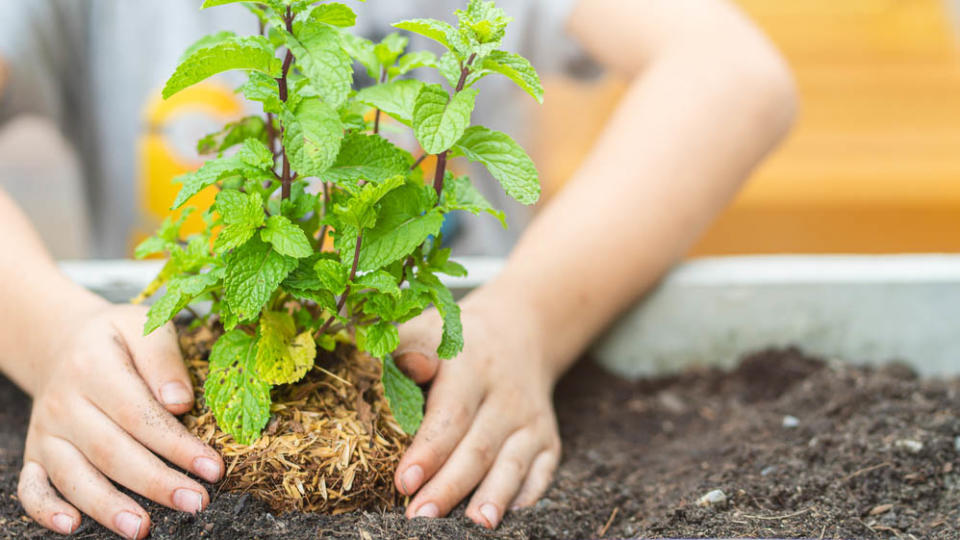
For an ongoing source of these fragrances, you can also invest in some of the plants themselves to place around your home, yard and porch. Once again, peppermint, spearmint, lemongrass and citronella all work well, plus these plants are easy to grow.
Certain plants should also be avoided as they have the opposite effect and attract wasps. Avoid brightly-colored flowering plants which produce nectar if you want to keep wasps at bay — or simply plant them further away from your home.
3. Wasp traps
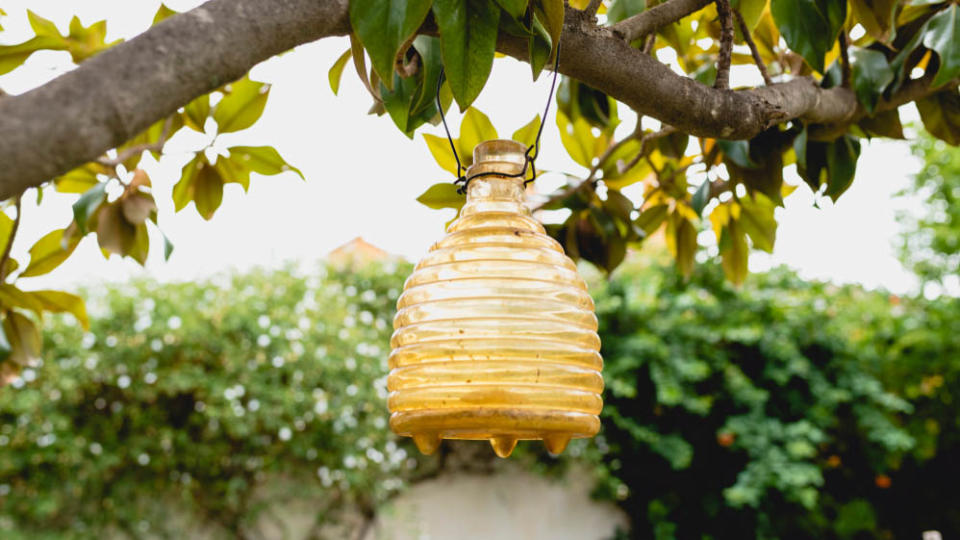
If wasps often visit your yard, and there’s too many to enjoy the outdoors, you can always set up wasp traps to lower the numbers. Traps are widely available from home department stores, such as the RESCUE TrapStik ($19, Amazon).
Alternatively, you can create your own home traps to get rid of wasps. Just cut an empty bottle in half, then add some sugar water to the lower half. Flip the top half of the bottle upside down and place it into the bottom half with the lid removed and facing downwards. Make sure the liquid level is beneath the opening of the bottle.
Then place your trap outside to attract the wasps. Once lured in by the sugar water, wasps won’t be able to find their way back out and the water will eventually drown them. Just make sure the wasps are dead before attempting to dispose of the bottle.

RESCUE! VisiLure? TrapStik for Wasps (x2): $19 @ Amazon
The VisiLure TrapStik is able to lure wasps, bees and mud daubers without the use of harmful odors, chemicals, or wasp sprays. Designed with Unique Glue Guards, this creates a barrier around the sticky trap surface. View Deal
4. Fake wasp nests
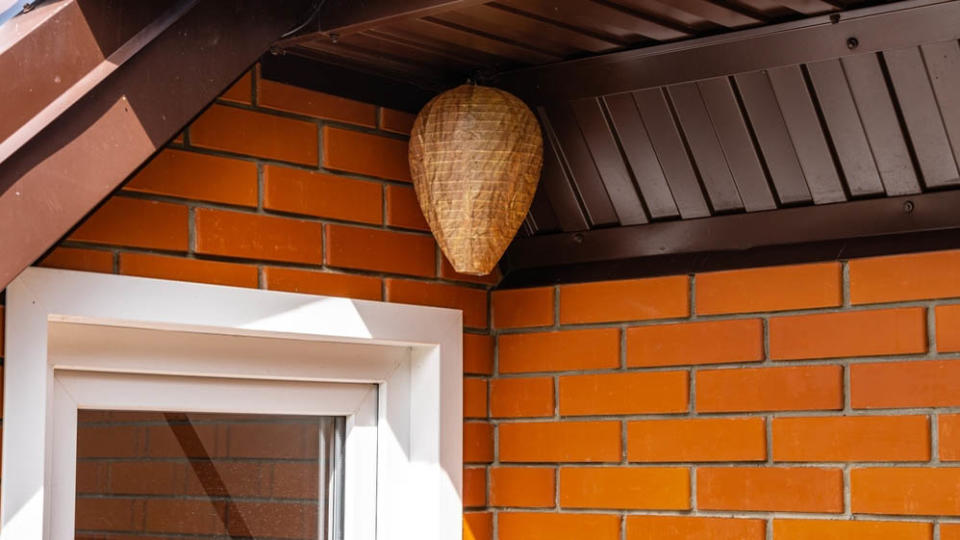
If you worry about wasps building a nest in your yard, you can always put them off by hanging a fake nest. That’s right — wasps won’t build a nest if they believe another colony has already occupied the area. There’s a range of fake nests you can buy online, such as this 4 Pack Wasp Nest Decoy Hanging Wasp Deterrent ($9.95, Amazon).
You can also make your own fake nests by simply hanging up crumpled paper bags. Just make sure they’re out of the rain, so they won't be ruined by a downpour.
5. Soapy water
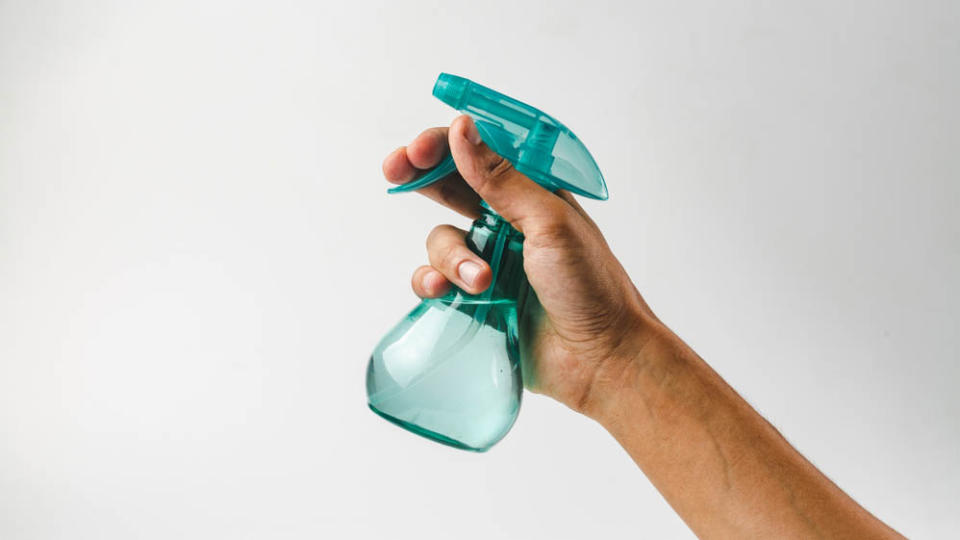
When wasps just won't leave you alone, and you’d rather not use chemicals to kill them, there’s always the option of using soapy water. It might sound too simple to be true, but soapy water is actually very effective. The soap blocks the pores which wasps breathe through, which kills them pretty quickly.
All you need to do is combine a couple of tablespoons of dish soap with water in an empty spray bottle, then mix before you use. Soapy water is also effective on hornets.
6. Ultrasonic pest repeller
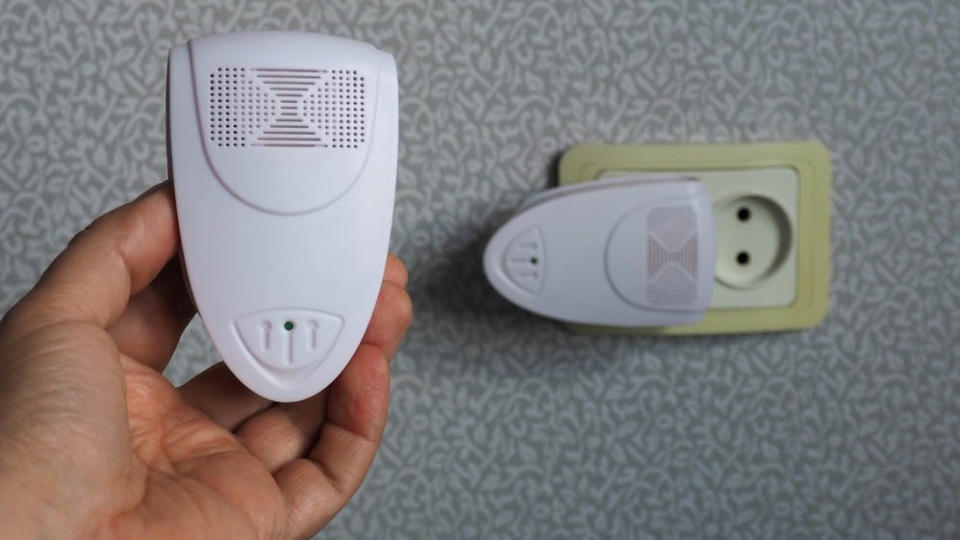
Ultrasonic sounds can be used to deter all kinds of pests, from moles to mice. But, did you know that it’s pretty effective on wasps as well? You can buy ultrasonic devices which plug in around the home to keep wasps away, such as the Neatmaster Ultrasonic Pest Repeller ($26.99, Amazon).
You can also get ultrasonic emitters for your yard as well, although these tend to be designed for larger pests, such as rabbits and squirrels. Because of this, most come with motion sensors as standard, and they consequently wouldn’t be suitable for wasps.
7. Clean up your trash
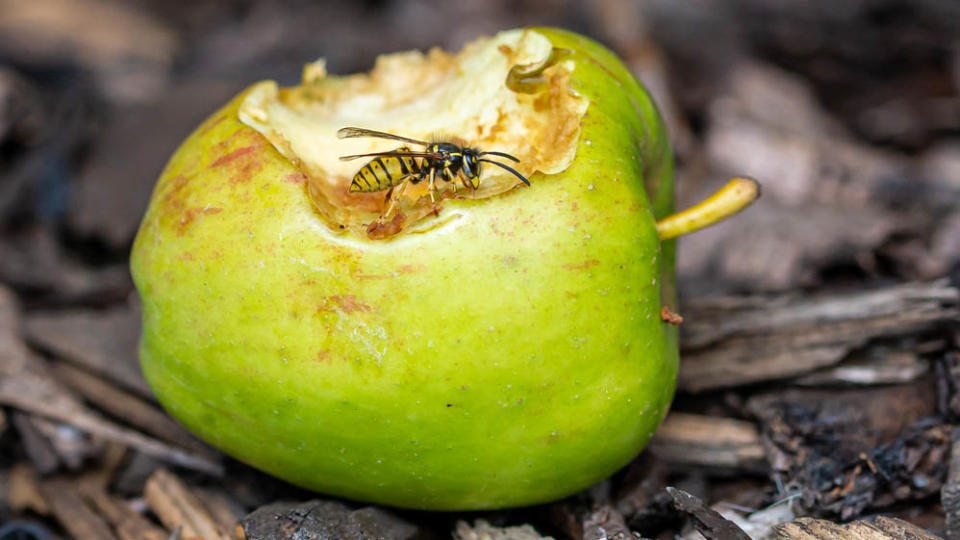
If your trash can is overflowing, then wasps will flock to your home from far and wide. Anything sweet will attract not just wasps, but all manner of insects, so make sure your food debris is contained and sealed. This is just as important outside as it is indoors.
Upgrade your trash can to one with a locking lid if necessary, or invest in a latch to keep the lid in place, such as the Lid Loc ($12.99, Amazon). Make sure you clean any spills from the trash can as well — this will continue to attract pests.
8. Seal any cracks
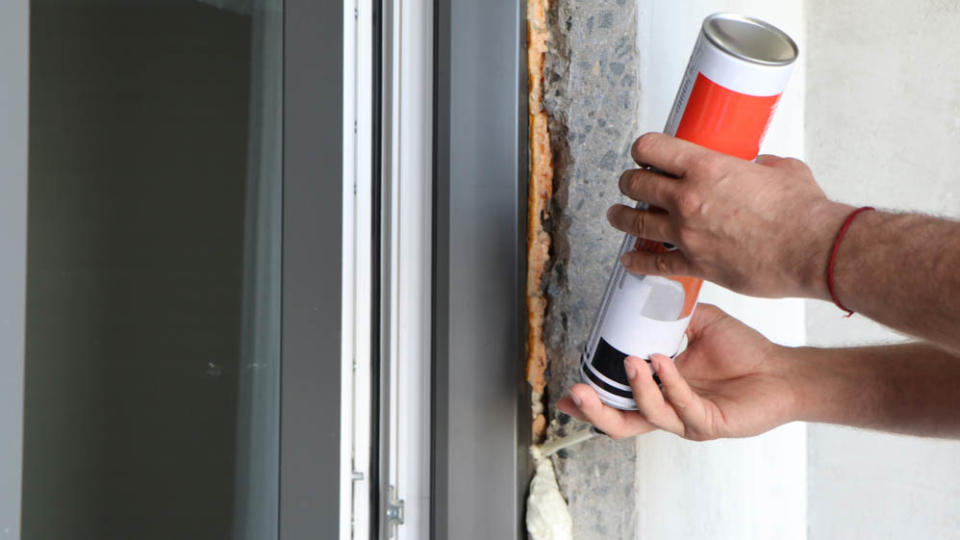
If you keep catching wasps in your home, you need to work out how they’re getting in. Odds are they use small cracks and gaps around window sills and door frames. Take the time to assess any possible entryways around your home, and fill in any you spot.
9. Create a vinegar solution
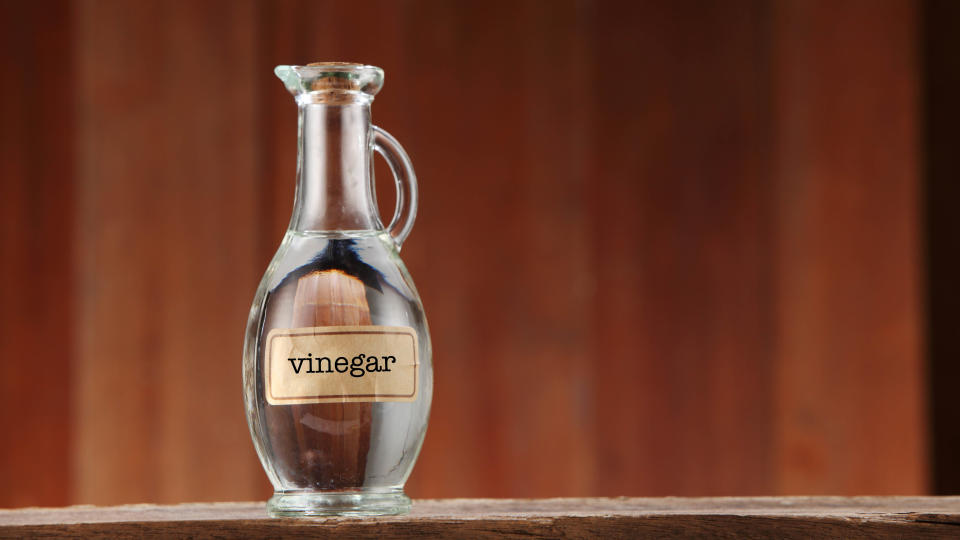
Another effective home remedy is vinegar, thanks to its acetic acid that will keep wasps away. Simply mix 50:50 white vinegar and water into a spray bottle, and spray directly onto nests or in areas. The vinegar will cause the wasps to either fall out of their nests or repel them from returning to your home.
Alternatively, you can use apple cider vinegar and water mixed in a bowl, and leave the solution near the nest so wasps will essentially drown. In fact, white vinegar is great for banishing most household bugs and pests.
You might also want to check out how to get rid of fruit flies and how to get rid of fleas quickly if you find any at home. Knowing how to get rid of maggots is useful as well if you spot them in your garbage.